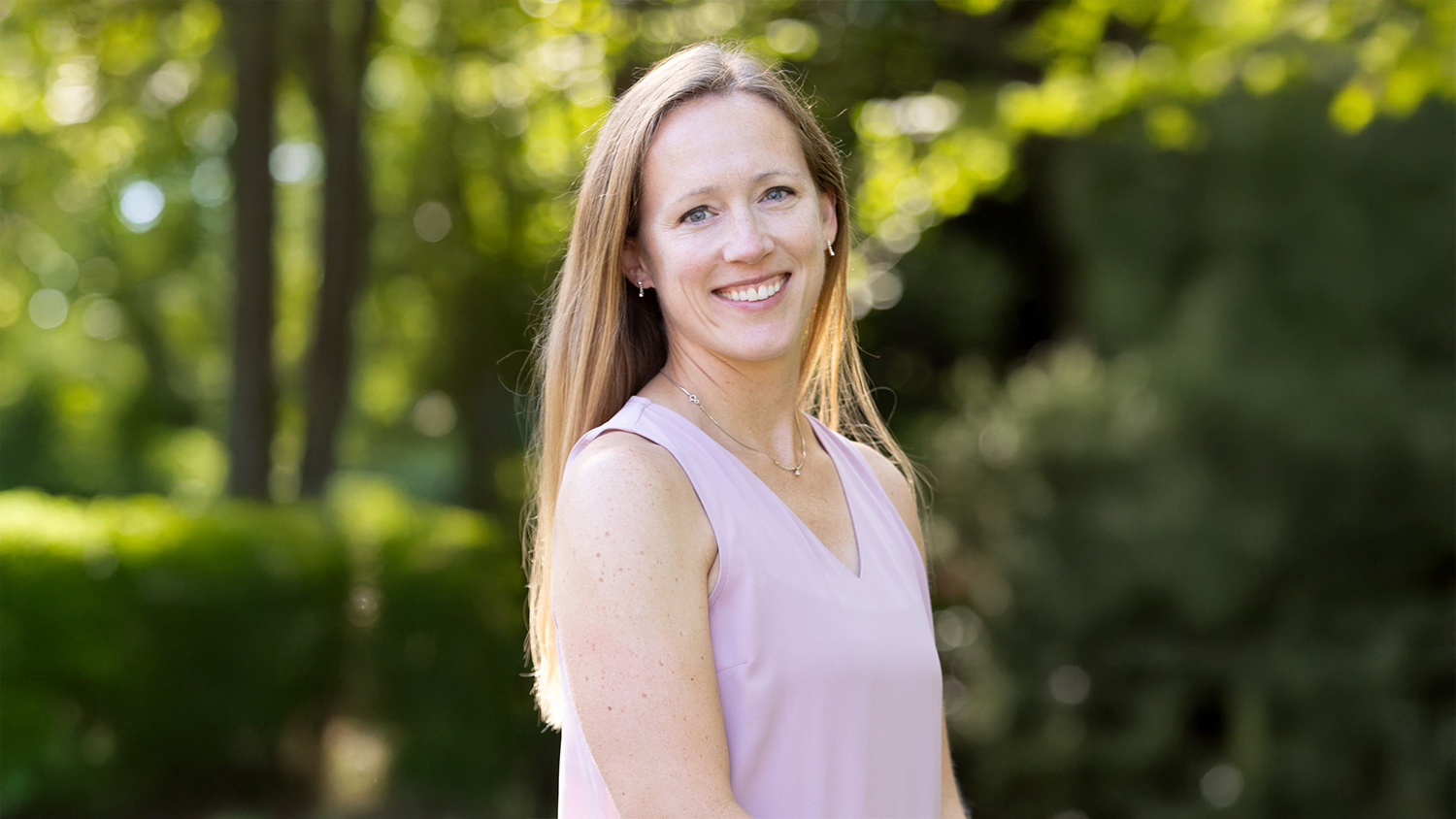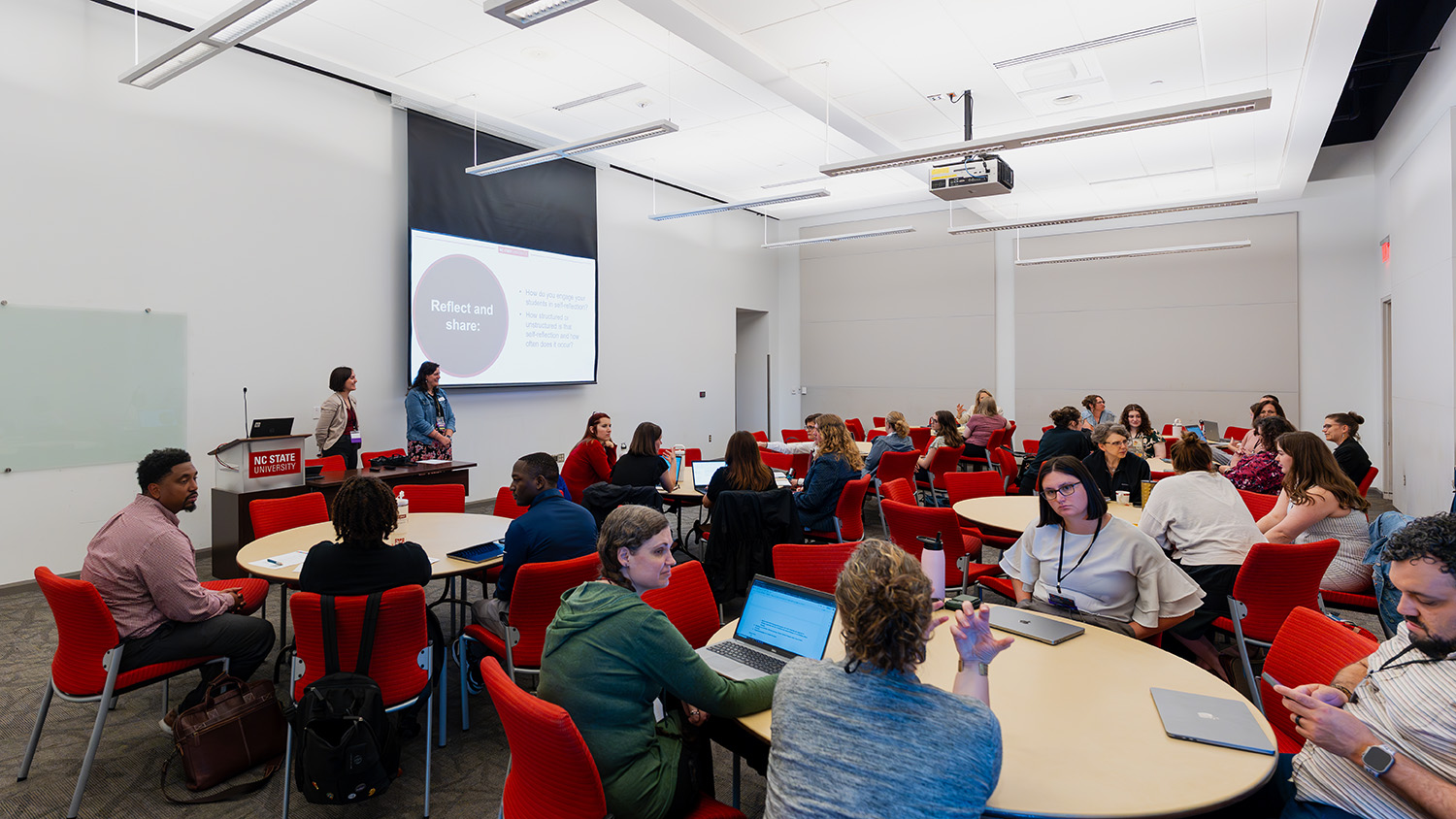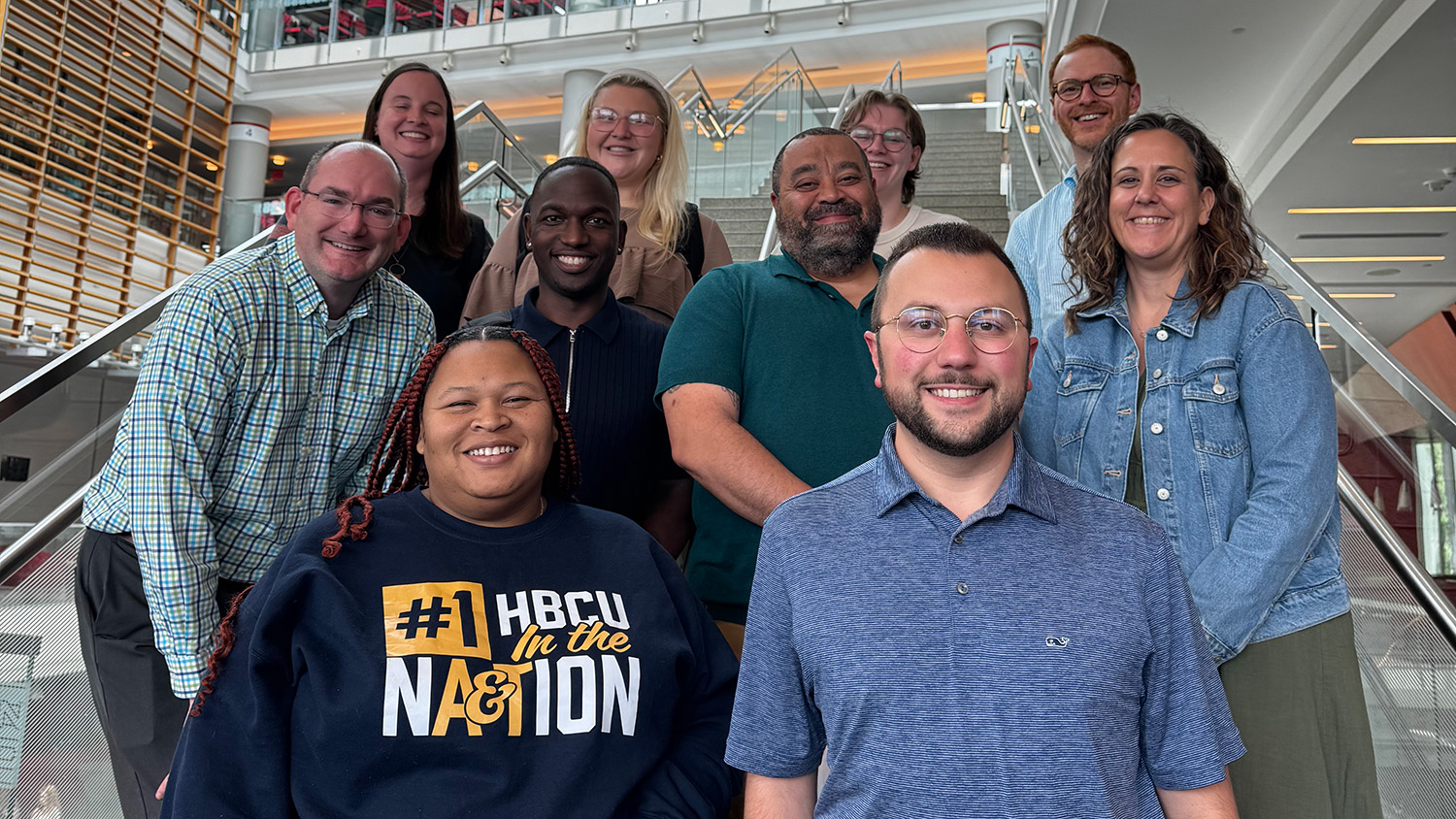DASA Lends a Helping Hand
After Hurricane Helene devastated western North Carolina, a team of Division of Academic and Student Affairs employees traveled to UNC-Asheville to assist with recovery efforts.
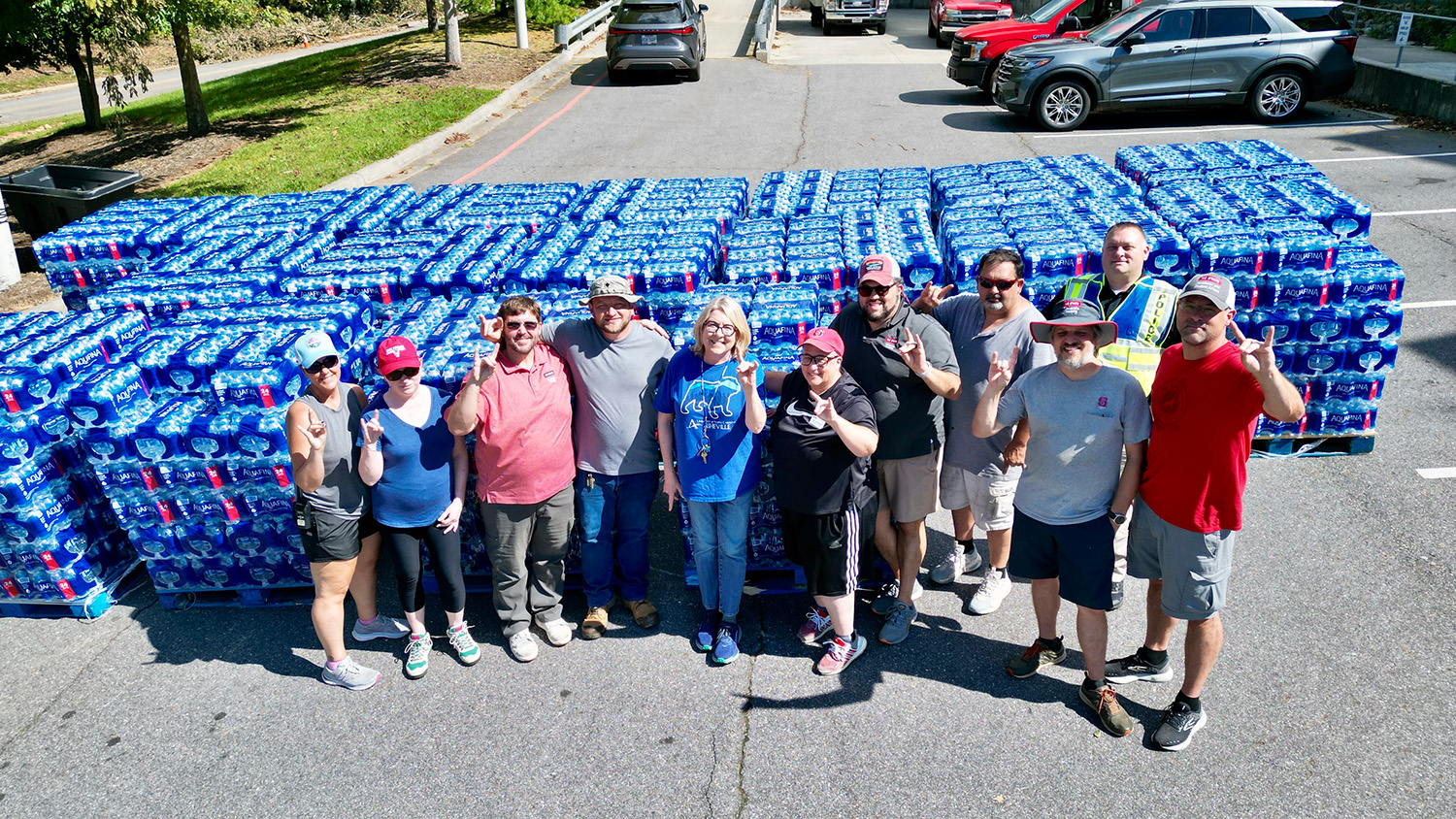
In early September, Hurricane Helene devastated western North Carolina, with entire towns effectively destroyed, infrastructure such as electricity, water, cell phone service and radio communications wiped out, and the death toll tragically reaching over 100 people.
We put a call out, and we had a team of people that were ready to go.
In the days, weeks and months that followed, countless “boots on the ground” flowed into the region, including the United States military, FEMA and the Red Cross. At UNC-Asheville, with the campus facing significant loss of infrastructure and damage, a different form of help arrived: a team of nine employees from NC State’s Division of Academic and Student Affairs (DASA), led by Assistant Vice Chancellor Justine Hollingshead.
“I’m always proud of the work that we do,” Hollingshead said. “When you think about entities like the military, FEMA and the Red Cross, they expect that when you get a call to deploy, you have 48 hours. You wouldn’t expect that from higher education and student affairs, but by gosh, we put a call out, and we had a team of people that were ready to go.”
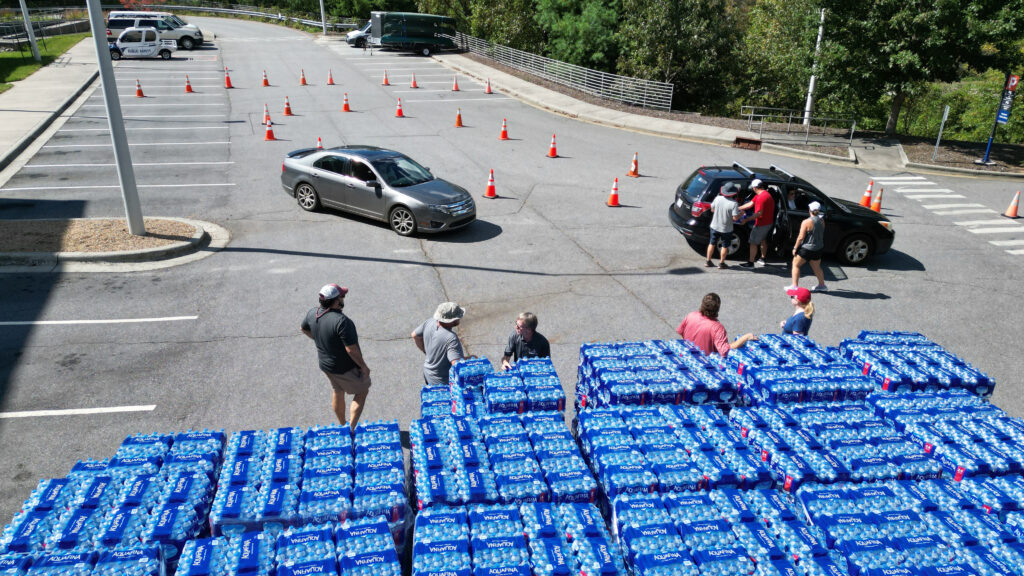
Answering the Call
On Saturday, Sept. 28, the morning after the storm ravaged North Carolina mountain communities, Hollingshead received a call from UNC System Vice Chancellor of Academic and Student Affairs Bethany Meighen, asking for support for UNC-Asheville from student affairs workers, specifically housing and residence life employees and counselors. Hollingshead was asked to lead the team given her prior deployment experience, including a trip to UNC-Wilmington after Hurricane Florence in 2018.
Hollingshead, Associate Vice Chancellor Donna McGalliard and University Housing Facilities and Business Operations Director Pete Fraccaroli immediately began assembling a team and acquiring necessary equipment and resources.
NC State and the UNC system both signed off on the trip, allowing the nine NC State employees to spend working hours helping the Asheville campus.
The group gathered necessary supplies such as food, water, power generators, propane tanks (which were used to power food trucks donated by East Carolina), two-way radios and emergency lighting, and used a DASA facilities box truck and three other university vehicles for the trip.
“We knew we’d have to be self-sufficient because at that time they had no water, no power, no phone service,” Hollingshead said.
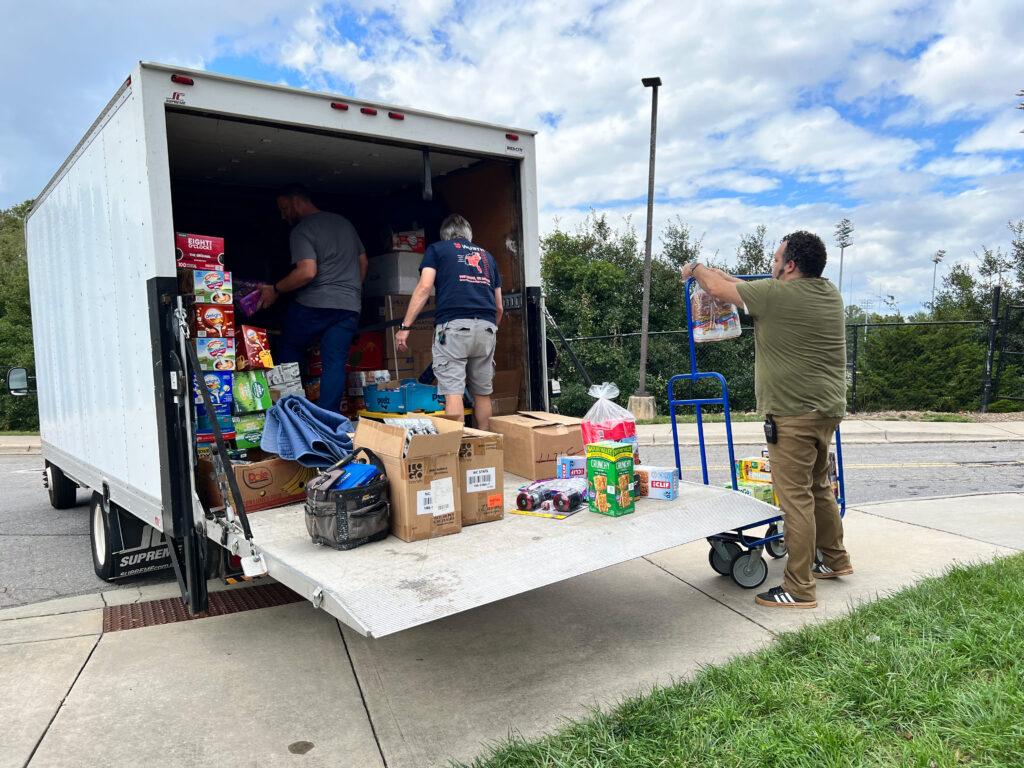
The team of volunteers consisted of Hollingshead, Fraccaroli, housing/facilities employees Abinadi Ehrisman, Lisa LaBarbera-Mascote, Jimi Carpenter, Dale Lefler, Bryan Botts, Kevin Sutherland and Heather Rogers, a psychiatrist with NC State’s Counseling Center.
“It feels great to have been able to play some part in helping out,” Ehrisman said. “They’re going to need help up there in the region for a long time, but it feels good to have played a small part in that.”
A Little Bit of Everything
The team arrived in Asheville around lunchtime on Monday, Sept. 30. After depositing their belongings into a residence hall multi-purpose room, where they slept on mattresses throughout the four-day stay, the group immediately went to work assisting UNC-Asheville’s housing staff.
The university had already made the decision to close campus, so the DASA team assisted with coordinating the evacuation of the last few students in residence halls.
That first day, Botts and LaBarbera-Mascote drove an international student on UNC-Asheville’s men’s tennis team halfway to Charlotte to meet a UNC-Charlotte police officer, and, before returning to Asheville, set up several new iPhones that AT&T donated to the campus.
“We did a little bit of everything,” Hollingshead said. “The nine of us that went are all people who are doers. We knew that we would be asked to do any sort of task. You just have to be willing to do the task. It’s a disaster. You’re not staying in a hotel. It’s not glamorous.”
On Tuesday, the DASA team assisted with pulling trash and perishable food from student rooms that had been without power for several days. The campus houses about 1,500 students and contains approximately 700 student rooms.
Hollingshead explained that NC State allowed several of UNC-Asheville’s essential personnel who had been on campus working 24/7 since the storm hit to take a break and get some much needed rest.
“One of the biggest things I noticed when we got on campus was the impact it had on their staff,” Fraccaroli said. “You could tell they had been working hard and needed some time away. So that’s one of the things that Justine really pushed on when we got there, was to make sure that those staff members who had been working 24/7 for multiple days got a reprieve and some rest.”
On Wednesday, the team coordinated the return of students to campus to retrieve essential items from their dorm rooms.
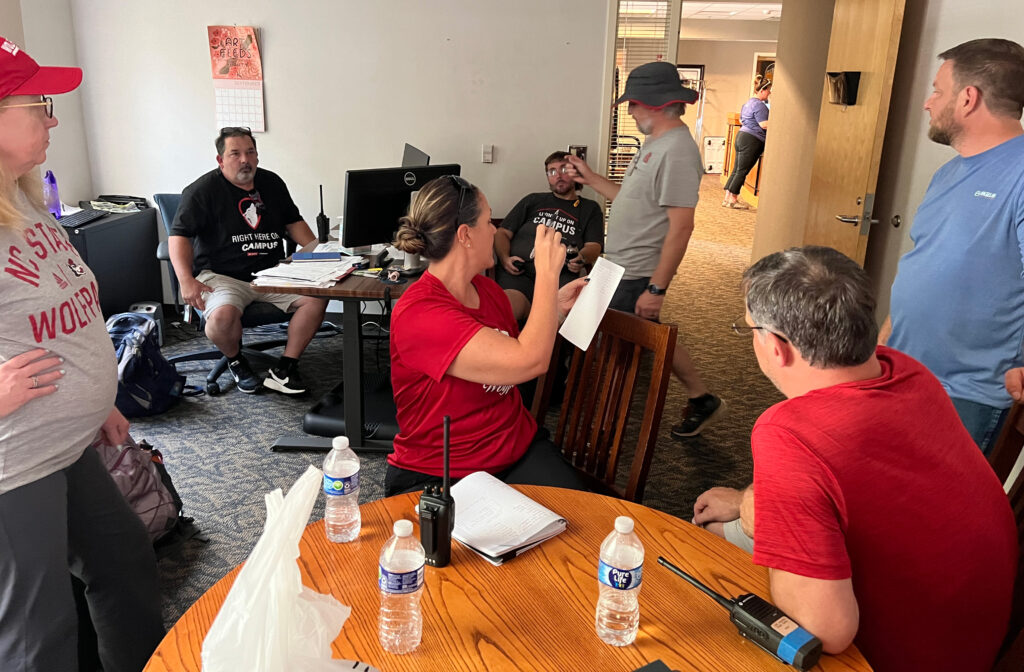
This included staffing each building location, taking students’ IDs before they went into their rooms and ensuring they departed in a timely fashion. The team also helped set up and organize a supply depot in the UNC-Asheville Student Union’s ballroom.
“That was the most rewarding part of the experience,” Ehrisman said. “You could see that the people that we were interacting with were pretty exhausted and had things going on in their own lives. It was nice to be able to tell them to go rest and let us do whatever we could to help out.”
In addition to all of the residence and housing assistance, Rogers worked with the school’s Health and Counseling Center to provide support and brainstorm ways to help students impacted by the devastating flooding, and also help the school’s staff who experienced the effects of the storm.
“I think it’s so important,” Rogers said. “The staff there are trying to do their jobs under incredibly difficult circumstances, plus they’re worrying about their family, their friends, their neighbors, their damaged homes. Some of them had their family evacuated. So they were feeling torn in so many different directions, and so worried and overwhelmed. I was really glad we could help them.”
A Helping Hand
For Hollingshead, a 29-year North Carolina resident, witnessing the devastation in and around Asheville, and throughout such a special region of the state, was difficult.
A long-time emergency management veteran, Hollingshead has been deployed after disasters such as Hurricanes Floyd, Katrina and Florence, as well as the earthquake in Haiti, and called the devastation in the mountains among the worst she’s seen.
“When water treatment plants, water lines, cell phone towers and radio antennas are just gone, it is crippling in that regard,” she said. “When you just look at the destruction in quiet, beautiful little mountain places, it hits you hard. It took a couple days for it to really sink in for me, the people lost. I’ve seen people pull together, but also with the misinformation and unhelpful rhetoric, that’s been hard to hear as somebody who was there and saw what we did. That’s frustrating, for sure. It was hard to see, because you just want people to have their lives back and in some cases it’s just not possible.”
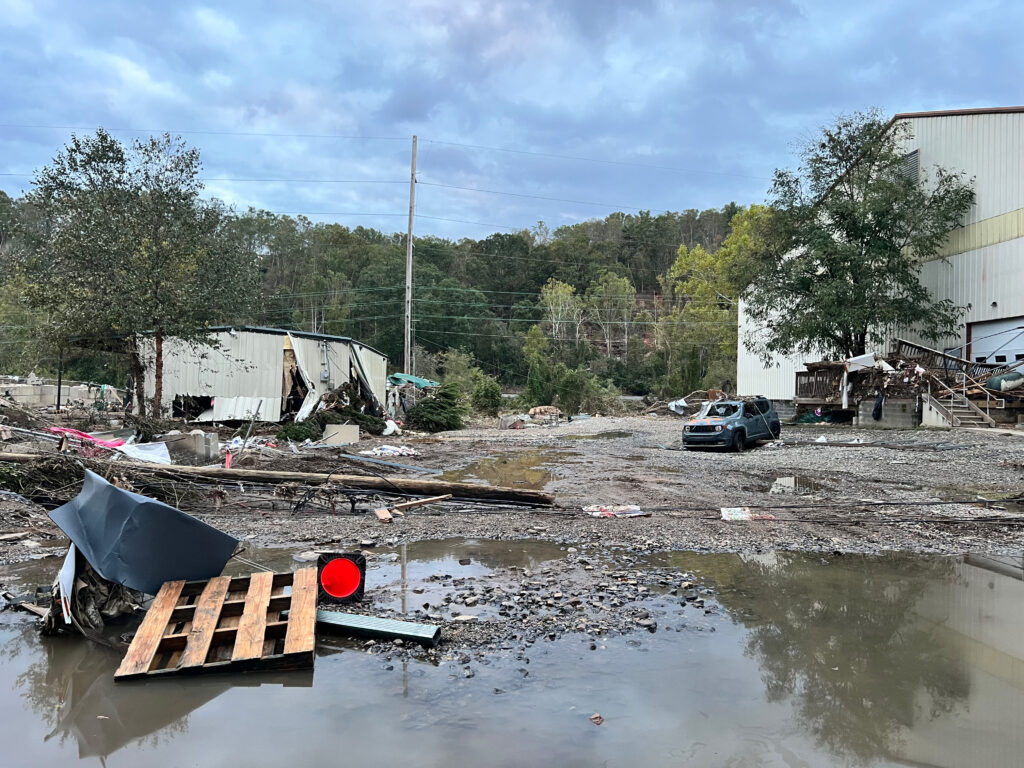
For some on the trip, such as Rogers, this was their first time traveling to assist after a disaster, an eye-opening experience.
“It really meant a lot,” Rogers said. “I was really glad I got to do it. Working under Justine, she’s so experienced dealing with these disasters, and I spent a fair amount of time at her side getting a sense of what things are involved with a response like this. So I learned a lot from her. She was a great leader for the team to help us all jump in wherever we were needed and provide that support.”
The trip stood as an opportunity for the staff at NC State to assist a fellow UNC system institution, and lend a helping hand to colleagues in their field dealing with an unimaginably difficult situation.
“It’s about being part of a broader community,” Fraccaroli said. “If something like this ever happened here at NC State, there would be other people in the system that would come and assist in the way that we did, and do whatever we needed them to do.”
Going forward, Hollingshead stressed the importance of not falling into the spread of the aforementioned misinformation of these disasters, and relying on trusted news sources or first-hand accounts from those such as the NC State team.
She also spoke to the importance of ensuring the region continues to receive all of the assistance it needs.
“I’ve had a lot of people reach out and ask how they can help,” Hollingshead said. “They’ll still need help for a long time, so it’s important to be willing two, three or six months from now and to do something to educate people, do a drive at your church, give money and find that way that you can get involved. You see it at times when it really needs to happen, you just hope you would see it all the time. DASA’s pretty special with the people that work in the division. ”
- Categories:
